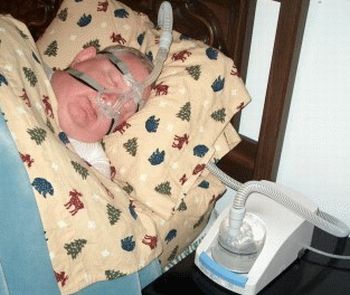Study Shows How Sleep Apnea Increases Stroke Risk
 A study conducted by the scientists at the Yale University School of Medicine in New Haven, Connecticut, revealed that a hazardous type of snoring called sleep apnea can result in stroke by lowering blood flow to the brain, increasing blood pressure and eventually harming the brain’s capability to adapt these changes.
A study conducted by the scientists at the Yale University School of Medicine in New Haven, Connecticut, revealed that a hazardous type of snoring called sleep apnea can result in stroke by lowering blood flow to the brain, increasing blood pressure and eventually harming the brain’s capability to adapt these changes.
Writing in the Journal of Applied Physiology, the group led by Vahid Mohsenin said that their findings may help clarify why people having sleep apnea are more likely to suffer strokes and to die during sleep.
Approximately 18 million Americans are suffering from this disease (sleep apnea), which is the most commonly diagnosed condition amongst sleep-related breathing problems that can cause debilitating, and sometimes lethal consequences.
Mohsenin said, “Three years ago we showed that patients with sleep apnea ... they die or have strokes three times more than people with a comparable age or risk factors without sleep apnea.”
“We asked the question of why they have a higher risk for stroke,” he added.
Mohsenin and his fellow workers stated that they examined 48 middle-aged men and women, out of which 22 had sleep apnea but in good physical shape. The research team checked their BP levels and used ultrasound in order to check blood flow in the brain.
They had the volunteers do a BP examination in which they squatted and then stood at once.
“We found that patients with sleep apnea had difficulty compensating for the change in blood pressure,” Mohsenin said. “They actually had decreased blood flow to brain.”
Mohsenin told this indicated that the harm caused by sleep apnea continues all through the day.
Mohsenin also said that his team members will examine whether ‘statin’ drugs, which lessen inflammation, can reinstate the lost brain function in sleep apnea patients.
Afterward, the patients will also be handled using airway pressurization masks, or CPAP.
He also said, “The important thing is to recognize sleep apnea early on so there won't be any significant damage to the brain.”
During sleep apnea episodes, the upper airway becomes blocked, hindering or stopping breathing and causing blood oxygen levels to drop and blood pressure to rise. The person eventually awakens and begins breathing, restoring normal blood oxygen and blood flow to the brain.
During sleep apnea episodes, the upper airway gets blocked, hindering or stopping breathing and causing blood oxygen levels to fall and BP to go up.
Using an airway pressurization mask helps brain to restore normal function, Mohsenin said, although no study has proven it lowers the chances of strokes.